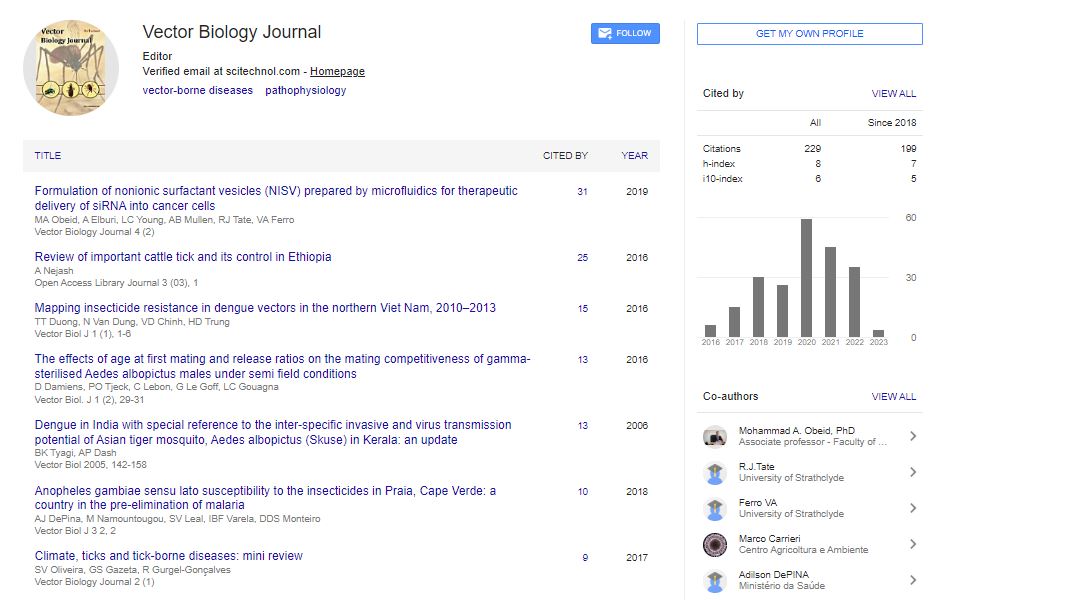Revisiting the increased prevalence of clozapine induced cardiotoxicity in New Zealand and Australia and a proposal for a pragmatic cardiotoxicity monitoring guideline
Guna Kanniah
Waikato Hospital Mental Health Pharmacy, New Zealand
: Vector Biol J
Abstract
Objective: To revisit and assess the prevalence of clozapine induced cardiotoxicity incidence rates, summarize diagnostic features, and evaluate monitoring procedures for safe clozapine rechallenge. Methodology: This review included all published reports of clozapine associated cardiotoxicity using keywords as “clozapine-cardiotoxicity”, “clozapine-myocarditis”, and “clozapine-cardiomyopathy” utilising Discovery database till 2016. 5175 abstracts were reviewed preliminarily, to yield 110 reports that met criteria for inclusion. Results of review: Clozapine-associated Myocarditis and rechallenge Incidence of early myocarditis (≤2 months) ranges from <0.1 to 1.0% and is about 10 times less 3–12 months later. Clinical diagnosis is confounded by variability in presentation and non-specificity of symptoms. Mortality involved 10–30% of affected cases. Rechallenge considerations include clozapine impact on symptomatic severity and associated disability and risk of suicidality. It’s recommended only after full clinical resolution of myocarditis and cardiac function impairment, under closely controlled conditions, with very low and slow retitration and frequently assays of lab and cardio biomarkers. Clozapine associated cardiomyopathy and rechallenge Incidence ranges from 0.02% to 0.10% (UK) or more in Australia. Mortality has been reported at 12.5–24.0%. Rechallenge is generally not recommended. There are only three published case reports of which one experienced a re-exacerbation of cardiomyopathy. Monitoring Cardiac Toxicity: Plausible steps include closer clinical monitoring, repeated assays of biomarkers, and echocardiographic studies, and cardiac MRI - in cases with unremarkable findings of cardiac dysfunction with echocardiography. Conclusion: The evidence suggests clozapine-induced myocarditis and cardiomyopathy may have been underreported worldwide. The true incidence may be as high as around 3%. Identification of subclinical cardiotoxic effects will improve outcomes by earlier recognition before clinical manifestations of cardiac impairments. Emerging consensus on a pragmatic closes clinical monitoring and repeated assays of cardiac biomarkers are aimed at timely detection of cardiac toxicity, in the initial phase of treatment will be proposed.
Biography
Guna Kanniah currently works as a specialist Mental Health pharmacist at the Mental Health services, Waikato District Health Board. His current research interest Clozapine related adverse effects Long acting injectable antipsychotics Psychotropics and mood stabilisers in pregnancy Forensic psychiatry new pharmacy innovations in Psychiatric services Psychopharmacotherapy Clinical Psychopharmacology Audits in Mental health services related to Psychopharmacotherapy, psychotropic prescribing and psychotropic administration Metabolic syndrome related monitoring and research.
E-mail: guna.kanniah@waikatodhb.health.nz
 Spanish
Spanish  Chinese
Chinese  Russian
Russian  German
German  French
French  Japanese
Japanese  Portuguese
Portuguese  Hindi
Hindi 